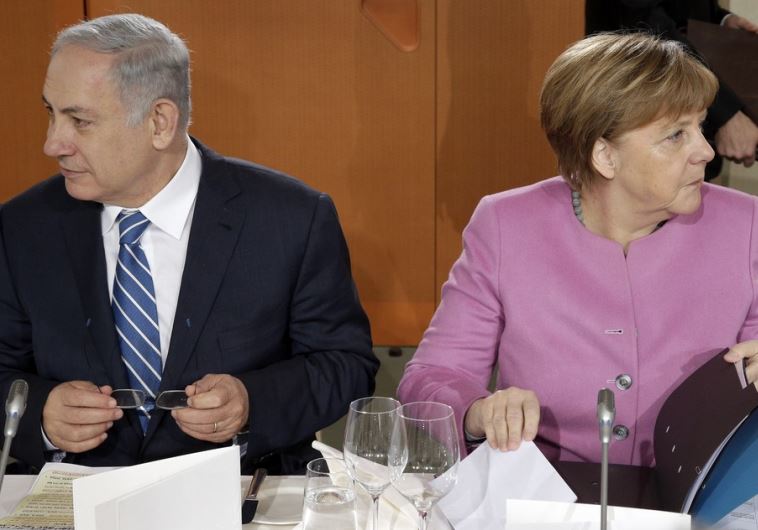Report: Germany rethinks its policy of automatic support for Israel
According to 'Der Spiegel', Berlin has grown exasperated with Netanyahu, who is perceived as an obstacle to a two-state solution.
 Prime Minister Benjamin Netanyahu (L) and German Chancellor Angela MerkelUpdated:
Prime Minister Benjamin Netanyahu (L) and German Chancellor Angela MerkelUpdated: